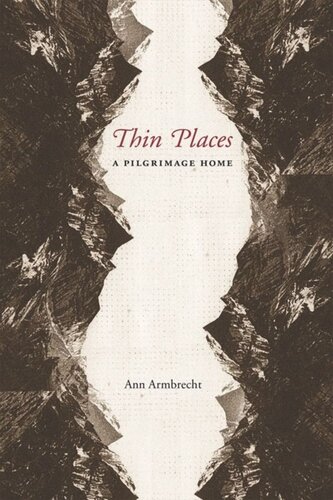

Most ebook files are in PDF format, so you can easily read them using various software such as Foxit Reader or directly on the Google Chrome browser.
Some ebook files are released by publishers in other formats such as .awz, .mobi, .epub, .fb2, etc. You may need to install specific software to read these formats on mobile/PC, such as Calibre.
Please read the tutorial at this link: https://ebookbell.com/faq
We offer FREE conversion to the popular formats you request; however, this may take some time. Therefore, right after payment, please email us, and we will try to provide the service as quickly as possible.
For some exceptional file formats or broken links (if any), please refrain from opening any disputes. Instead, email us first, and we will try to assist within a maximum of 6 hours.
EbookBell Team

0.0
0 reviewsThin Places is an eloquent meditation on what it means to move between cultures and how one might finally come home, a particular paradox in a culture that lacks deep ties to the natural world. During the 1990s, Ann Armbrecht, an American anthropologist, made several trips to northeastern Nepal to research how the Yamphu Rai acquired, farmed, and held onto their land; how they perceived their area's recent designation as a national park and conservation area; and whether-as she believed-they held a wisdom about living on the earth that the industrialized West had forgotten. What Armbrecht found instead were men and women who shared her restlessness, people also driven by the feeling that there must be more to life than they could find in their village. Charting Armbrecht's travels in the mountains of Nepal and in the United States, as well as her disintegrating marriage back home, Thin Places is ultimately an exploration not of the sacred far-off but of the sacredness of places that are betweenbetween the internal and external landscape, the self and others, and the self and the land. She finds that home is not a place where we arrive but a way of being in place, wherever that place may be.
Thin Places is an eloquent meditation on what it means to move between cultures and how one might finally come home, a particular paradox in a culture that lacks deep ties to the natural world. During the 1990s, Ann Armbrecht, an American anthropologist, made several trips to northeastern Nepal to research how the Yamphu Rai acquired, farmed, and held onto their land; how they perceived their area's recent designation as a national park and conservation area; and whetheras she believedthey held a wisdom about living on the earth that the industrialized West had forgotten.
What Armbrecht found instead were men and women who shared her restlessness, people also driven by the feeling that there must be more to life than they could find in their village. "We each blamed our dissatisfaction on something in the world," she writes, "not something in ourselves or in the stories we told ourselves about that world. If only we lived elsewhere, then we would be at home."
Charting Armbrecht's travels in the mountains of Nepal and in the United States and her disintegrating marriage back home, Thin Places is ultimately an exploration not of the sacred far-off but of the sacredness of places that are betweenbetween the internal and external landscape, the self and others, and the self and the land. She finds that home is not a place where we arrive but a way of being in place, wherever that place may be. Along the way, Armbrecht explores the disconnections in our most intimate relationships, how they stem from the same disconnections that create our destruction of the land, and how one cannot be healed without attending to the other.